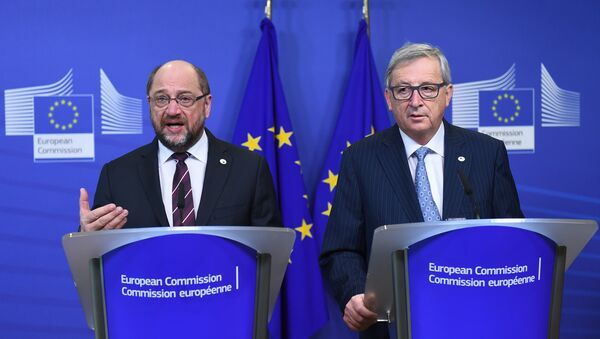UK Prime Minster David Cameron has repeatedly said that EU membership is beneficial for the United Kingdom, but only if the bloc were to implement new reforms. On Thursday, Cameron is scheduled to present the European Council with his case for the bloc's reforms.
"I think it will be very difficult to make changes to the [Lisbon] Treaty…The introduction of changes takes an average of four or five or six years, so it would be a contradiction to talk about short-term changes in the document, given that the referendum [on Britain's EU membership] will be carried out prior to that," Schulz said upon arrival at the EU summit in Brussels.
With the Conservative win in the May 7 general election, Cameron reaffirmed his commitment to holding a referendum on the UK's membership of the European Union by the end of 2017, and also pledged to renegotiate the terms of membership of the bloc ahead of the key vote.
The Treaty of Lisbon, initially known as the Reform Treaty, is an international agreement signed by the EU member states in 2007 that entered into force only in 2009, some eight years after European leaders launched a process of major reforms in the bloc.
The treaty provides the bloc with the legal framework and tools necessary to meet possible challenges and to respond to the nations' proposals and demands, and allows accountability by associating the EU Parliament and national parliaments.




